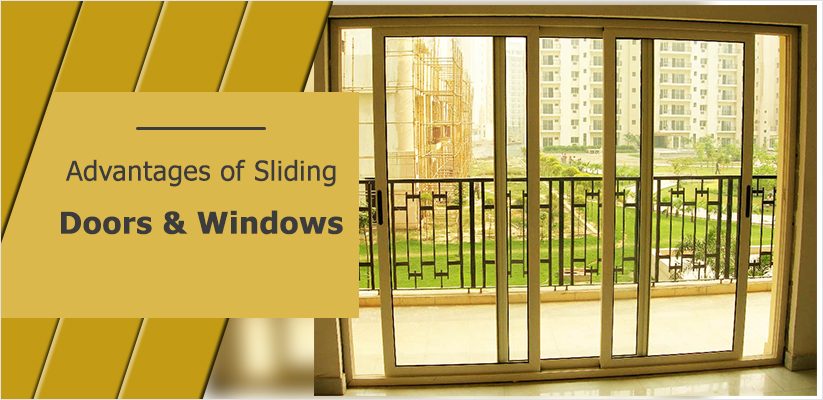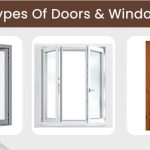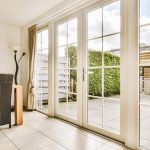Sliding windows and doors have become increasingly popular in modern architecture due to their functional and aesthetic advantages. They offer a unique way to connect indoor and outdoor spaces, improve ventilation, and enhance the overall aesthetics of a building. In this blog, we will delve into the concept of sliding windows and doors, explore their applications, advantages, and disadvantages, and conclude with a summary of their significance in contemporary design.
Post your Requirement
These windows/doors open horizontally and glide horizontally along the window or door channels instead of up and own. They are often used to extend your room’s ambience by helping brighten up the room while providing unobstructed access to views both on the inside and the outside. Additionally, they help to add to the beauty quotient of your home. They are also perfect for houses facing a space crunch as even the sliding doors take much little space while opening.
Sliding doors do have a number of advantages beyond aesthetics alone. Through this article, we are going to shed some light on the various advantages and disadvantages of sliding doors and windows so that you can avail of an informed decision before deciding whether they fit your requirements or not.
Enquire Now for Sliding doors
Understanding Sliding Windows and Doors
Sliding windows and doors are a type of opening system designed to move horizontally along tracks rather than swinging inwards or outwards like traditional windows and doors. They consist of panels that glide smoothly on tracks, allowing for easy operation with minimal effort. The most common materials used for sliding windows and doors are aluminum, uPVC (unplasticized polyvinyl chloride), and wood.
Suggested : Advantages and Disadvantages of uPVC Doors and Windows
Applications of Sliding Windows and Doors
Residential Buildings:
Sliding windows and doors are widely used in homes, particularly in living rooms, bedrooms, and patios, to create a seamless connection between indoor and outdoor spaces. They offer unobstructed views and flood the interiors with natural light.
Commercial Spaces:
These systems find application in commercial settings such as restaurants, cafes, and retail stores where large glass sliding doors can create an inviting and open atmosphere.
Balconies and Terraces:
Sliding doors are ideal for accessing balconies and terraces, providing an unobstructed entry and maximizing space utilization.
Room Dividers:
Sliding doors can also be used as room dividers, enabling flexible space management, especially in studios or open-concept spaces.
Showers:
Sliding shower doors are a popular choice in bathrooms as they save space compared to hinged doors and offer a modern look.
Interior Closets:
Sliding closet doors are a practical solution for saving space in bedrooms and storage areas.
Advantages of Sliding Doors and Windows are :
Space-saving:
Sliding windows and doors open horizontally along tracks, which means they don’t require any additional space to swing open like traditional doors. This makes them an excellent choice for areas with limited space.
Unobstructed Views and Natural Light:
Sliding doors often feature large glass panels, providing uninterrupted views of the outside and allowing plenty of natural light to enter the interior spaces, creating a bright and airy ambiance.
Aesthetic Appeal:
Sliding doors offer a modern and sleek appearance, enhancing the overall aesthetics of a building or room. The clean lines and expansive glass panels can add an elegant touch to any architectural design.
Improved Ventilation:
Sliding windows and doors can be partially opened to allow controlled airflow while maintaining security and privacy. This ventilation feature is particularly useful in areas with varying temperature conditions.
Energy Efficiency:
When equipped with high-quality weatherstripping and insulated glass, sliding doors can offer excellent thermal performance, reducing heat transfer and contributing to energy efficiency in a building. Sliding windows and doors make use of top-notch window glazing which not only helps improve insulation but is energy efficient as well. This will result in lower energy bills over time, which in turn, will result in significant savings. You will not only conserve money on your heating bills in the winter but also air-conditioning costs in the summer.
Minimal maintenance:
In comparison to other forms of windows and doors, sliding windows and doors comprises of fewer parts thus resulting in less breakage. This also means it mandates lesser maintenance over time hence proving to be a cost-effective and hassle-free solution for most homes.
Seamless Indoor-Outdoor Connection:
Sliding doors create a seamless transition between indoor and outdoor spaces, allowing residents to enjoy their gardens, patios, or balconies as an extension of their living areas.
Durable:
Traditional windows consisting of springs and pulleys tend to wear out or fail over sustained usage and time. Sliding windows and doors don’t make use of these components for opening or closing thus making them robust and more durable over a period of time. Additionally, sliding doors and windows also make use of window glazing which further adds to their durability.
Easy to use:
Sliding doors and windows are extremely easy to open and close while requiring minimal effort. They enable hassle-free operation and prove to be a boon for short walls. Instead of having to push them up, they glide along the frame with relative ease. Additionally, you can control the degree to which you want your door or window to be open as well. To open sliding doors or windows, all you have to do is release a latch and slide the window/door open.
Contemporary style
Sliding doors and windows help add a bit of style and panache to any decor. Given their sleek and modern look, sliding windows and doors can help make a dramatic style statement.
- Suggested Post: Top 10 UPVC Window Designs and Styles
Disadvantages of Sliding Windows and Doors:
The disadvantages of sliding doors and windows are:
Air Leakage:
Poorly installed or low-quality sliding doors may experience air leakage, reducing their energy efficiency and potentially leading to drafts and discomfort during extreme weather conditions.
Maintenance:
Sliding tracks can accumulate dirt, dust, and debris over time, affecting their smooth operation. Regular cleaning and maintenance are necessary to ensure they continue to function optimally.
Security Concerns:
Some sliding doors may have weaker locking mechanisms compared to traditional hinged doors, making them potential targets for break-ins. Investing in high-quality sliding doors with robust locks can mitigate this issue.
Cost:
Sliding windows and doors can be more expensive than traditional options, especially if you opt for high-quality materials and features such as insulated or impact-resistant glass.
Limited Size:
Sliding doors have practical limitations on their maximum size due to the weight and stability of the sliding panels. For very large openings, other types of door systems may be more suitable.
Risk of Jamming:
If not maintained properly, sliding doors may become susceptible to jamming or sticking, causing difficulty in opening and closing the panels.
Noise and Dust Infiltration:
Depending on the quality of the installation and weatherstripping, sliding doors may allow some noise and dust infiltration, which could be a concern for those living in noisy or dusty environments.
Cleaning
Sliding doors and windows can be challenging to clean on the outside. Although cleaning them on the inside is relatively easier, sliding windows slide back and forth thus making it difficult to clean from the outside especially during winters.
Unlike other types of windows that can be tilted inside for easy cleaning, it can be tricky to clean the entirety of a sliding window or door especially if it’s perched on a higher level. However, the job can be completed with a ladder so it is not a serious problem.
There are also certain corners which are difficult to reach and access especially the channels which can lead to accumulation of dust, grime and dirt.
Fingerprints
A lot of times, sliding doors and windows can become a fingerprint magnet as individuals tend to slide it open by touching the glass itself. This can prove to be quite an ordeal for the person who has to clean the windows because fingerprint marks can build up very quickly over time.
CONCLUSION
Sliding windows and doors offer a plethora of benefits that make them a sought-after choice in modern architecture. Their space-saving design, aesthetic appeal, and ability to blend indoor and outdoor spaces make them an excellent option for both residential and commercial applications. While they do come with some drawbacks, proper maintenance and high-quality materials can address most of these concerns. All in all, sliding windows and doors represent a stylish and functional solution for anyone looking to elevate their living or working spaces with a touch of contemporary design.
Despite these disadvantages, the advantages of sliding windows and doors often outweigh the drawbacks, especially when considering their space-saving design, aesthetic appeal, and ability to seamlessly connect indoor and outdoor spaces. Proper maintenance and investing in high-quality products can address many of the challenges associated with sliding windows and doors, making them a popular and attractive choice for modern architectural designs.




















Post A Comment